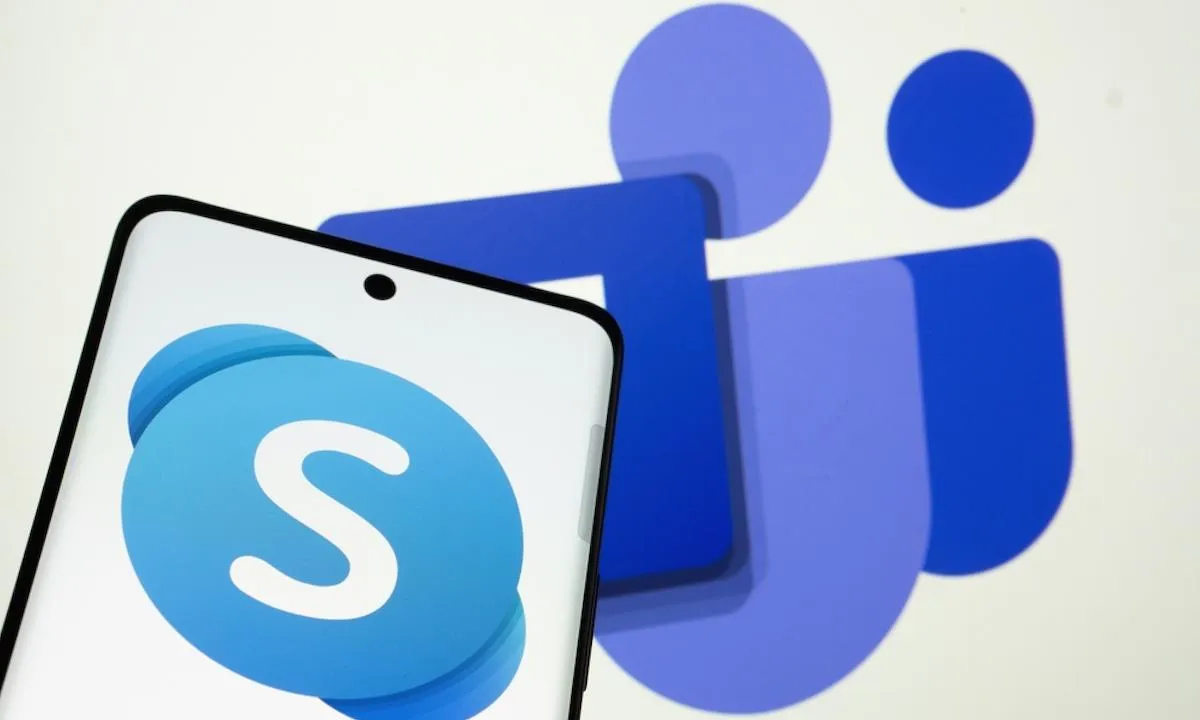
On Monday, May 5, the digital world will bid farewell to Skype, the once-revolutionary communication platform that connected people across continents and conference rooms with just a click. For millions of users, the nostalgic sound of Skype’s iconic ringtone and the thrill of seeing a loved one’s pixelated face appear on the screen evoke fond memories. After more than two decades of service, Microsoft has announced the retirement of Skype, marking the end of an era for the original king of internet calls.
The discontinuation of Skype isn’t merely a consequence of the relentless cycle of technological innovation — it's a strategic pivot by Microsoft. The tech giant acquired Skype for a staggering $8.5 billion in 2011, but it is now consolidating its communication strategy around Microsoft Teams. This platform has gained immense popularity, especially during the pandemic, and is now positioned as the company's all-in-one collaboration hub.
Microsoft Teams offers a suite of features including persistent chat, advanced meetings, file sharing, and deep integration with the Microsoft 365 ecosystem. These capabilities extend far beyond what Skype was originally designed to provide. Furthermore, Skype’s architecture, tailored for the desktop era, struggled to keep pace with the demands of mobile-first and cloud-native communication, leading to its decline in relevance.
As user preferences shifted towards seamless, integrated, and device-agnostic solutions, Skype's market share dwindled in the face of rising competitors such as Zoom, Slack, Google Meet, and FaceTime. This competitive landscape left Microsoft with little choice but to focus its resources on a platform that could better meet the demands of modern communication.
The announcement of Skype's retirement has sparked a wave of nostalgia and frustration among users. Social media and tech forums are filled with sentiments about the platform's impact. One Reddit user noted, “Skype has served as a reliable platform for millions globally… Its familiarity and dependability have made it a preferred choice for maintaining connections with loved ones and facilitating business meetings.”
Concerns about the transition to new platforms are prevalent, particularly for those who are less tech-savvy or use older devices. Many fear that this change could disrupt personal and professional relationships that have flourished on Skype. Additionally, users are worried about losing distinctive features such as affordable international calls and integrated chat and file sharing, which made Skype a go-to choice for families and teams alike.
Fortunately, Microsoft has provided a pathway for users to migrate smoothly. Users can export their chat history and contacts, and Microsoft Teams now allows sign-in using Skype credentials, facilitating a more seamless transition.
The digital landscape is littered with once-essential applications that have been retired. Here are five notable platforms from major tech companies that have now ceased operations:
MSN Messenger/Windows Live Messenger (Microsoft): This chat platform defined early 2000s instant messaging and was discontinued in 2012, paving the way for Skype. Google Jamboard (Google): Google’s collaborative whiteboard tool was discontinued in 2024 as the company shifted focus to more integrated solutions. Internet Explorer (Microsoft): Once the leading web browser, it was retired in 2022 and replaced by Microsoft Edge, marking the end of an era. Amazon Appstore for Android (Amazon): Set to discontinue in August 2025, this app store will leave Amazon Fire devices as the sole mobile app platform. iTunes (Apple): Officially replaced by separate Music, TV, and Podcasts apps in 2019, iTunes reflected the shift towards streaming and cloud-based media.As we say goodbye to Skype, it’s hard to ignore the prominence of Zoom, which has become synonymous with video conferencing during the pandemic. With 300 million daily active users, Zoom has established itself as the default platform for remote work, family reunions, and corporate meetings. While Microsoft Teams and Google Meet are strong contenders, Zoom's user-friendly interface and widespread adoption have made it the go-to choice for many.
As we reflect on Skype's legacy, let us raise a glass to the platform that pioneered internet calling, while also acknowledging Zoom’s current reign in the virtual meeting space. Whether it’s “unmuting” or “screen sharing,” the world has found new ways to connect, even as we bid farewell to a beloved communication tool.